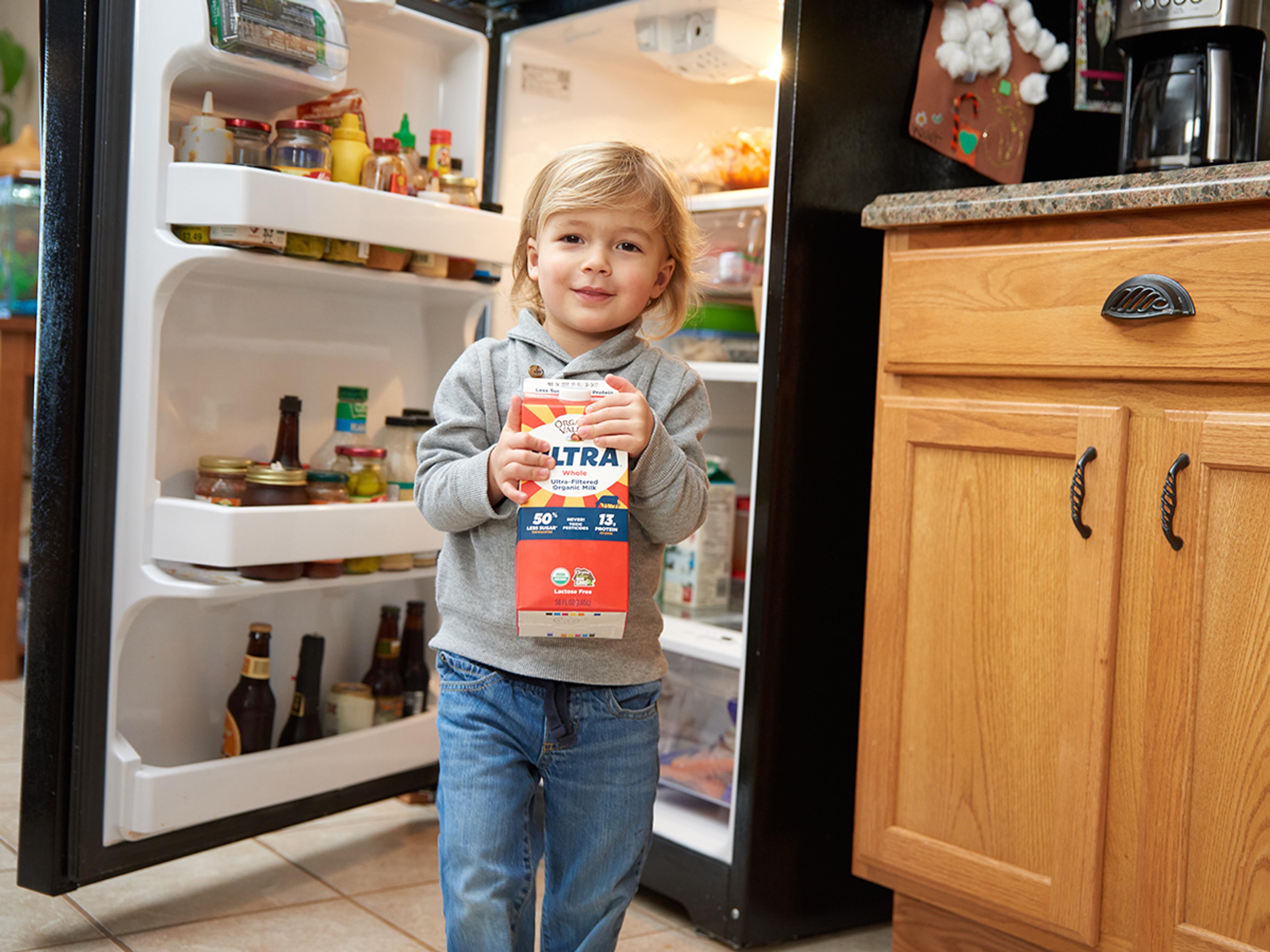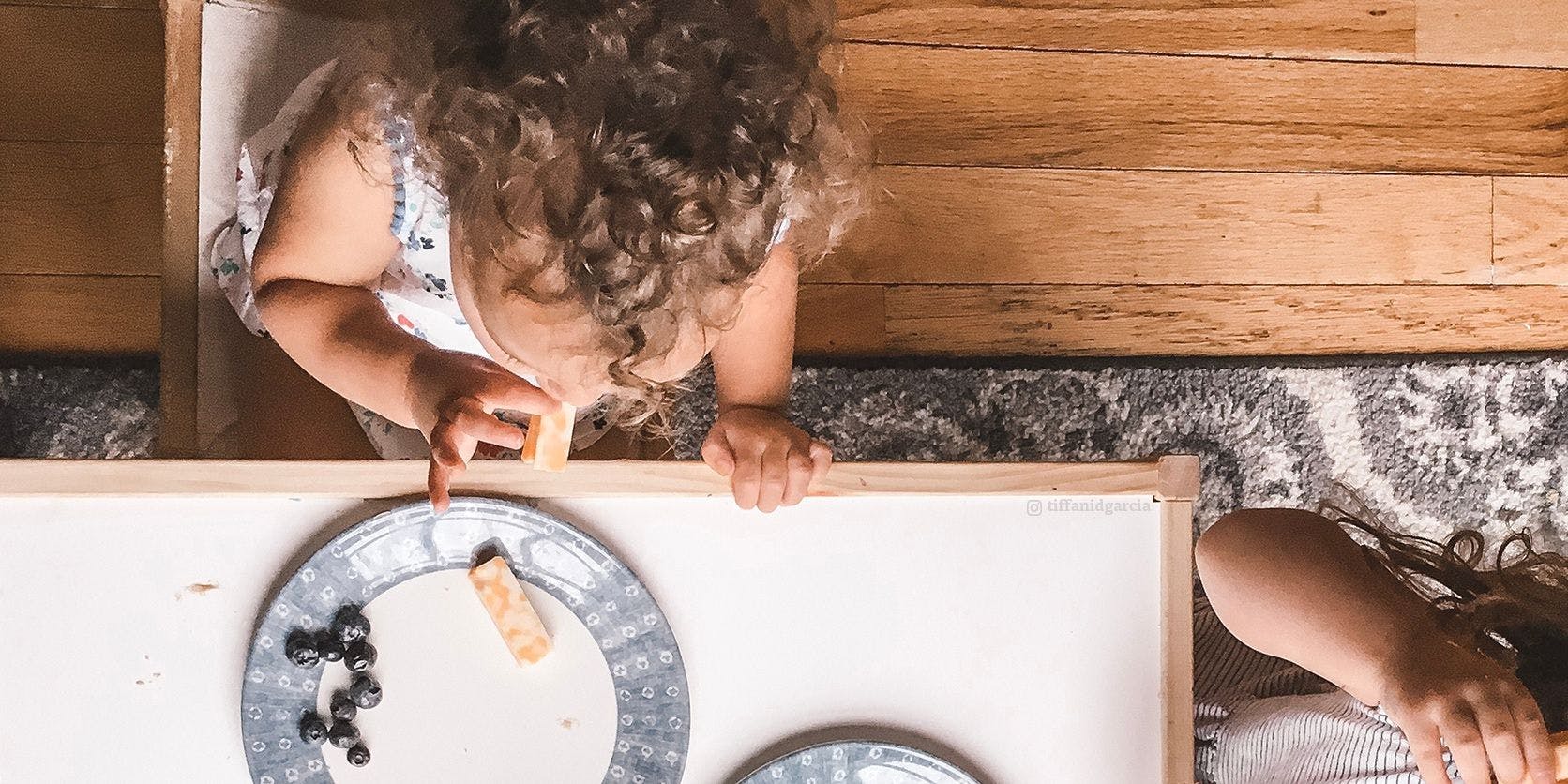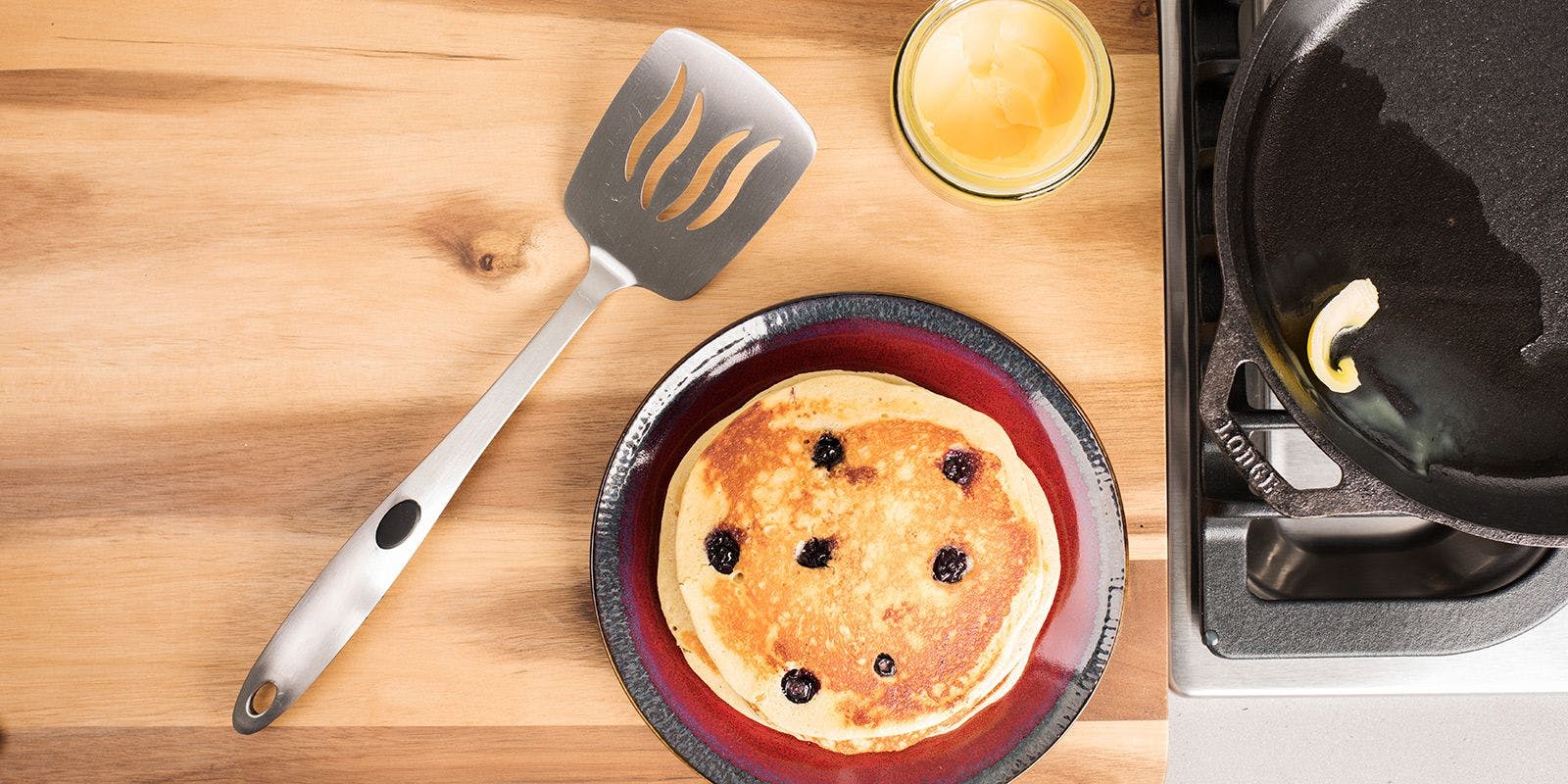
Food
Part 3: How do I talk to my child about their food allergy?
Editor’s Note: May is Allergy Awareness Month, and since dairy and eggs are common allergens, we’re sharing some helpful tips for navigating your child’s food allergy in a way that builds confidence and fosters a positive attitude toward food.
Talking to your child about what they can and cannot eat can be stressful and emotional. How do you help a toddler or elementary age child understand the seriousness of their allergy without making them fearful around food?
In this third installment of our four-part series, Sloane Miller, a specialist in food allergy management and author of Allergic Girl: Living Well With Food Allergies, shares her expertise and tips for making food allergy conversations normal and unscary, which might benefit your own mindset as well as your child’s! We want to help you and your child create a joyful and stress-free relationship with your food.
You’ve gotten through that first scary food allergy experience and doctor’s visit… now what? How do you explain all of this complex information to your little one so they understand it? So they don’t make a mistake? So they can get help when they need it?

Understand your child’s diagnosis.
I may sound like a broken record but I cannot stress this enough: Understanding your child’s diagnosis is key, as a poorly understood medical diagnosis becomes even more of a stressor. If you left the doctor’s office and still have questions, don’t hesitate to go back and get your questions answered. Once you intimately understand your child’s diagnosis, then you will be able to break it down into simple concepts your child can understand.
Be consistent, and guide with your actions.
This one is also key. Here’s what I’ve seen in my food allergy coaching practice: When parents give conflicting messages to a child, the child tends to go by what’s been done, not said. For example, if both parents say “you can never cheat with your allergen,” but one parent “cheats” by eating a restricted allergen in front of the child, the child may “cheat” too. They’re simply not old enough to understand that they can’t eat the same foods as Mommy or Daddy, so you must be disciplined in front of them; little eyes and ears are always on.
A note about having your child’s allergens in the home...
I’ve seen families successfully keep an allergen-free home as well as successfully have allergens in the home and away from the allergic child. Either can work and, ultimately, this is a very personal decision for each family. Talk about it together, openly and honestly, to find out what works best for your family. Here is some excellent guidance about allergens in the kitchen from AAFA/KFA.

Ask your pediatrician for advice.
Pediatricians are great at talking with kids about complex medical diagnoses. Listen closely to how they talk about food allergies with your child and underscore those lessons using the same language when you speak to your child. This will help deepen those lessons and solidify them.
No matter their age, encourage your child to ask questions of their doctor so they can begin to have that direct doctor/patient relationship that they will need as they grow and learn and become more independent. Here are some great additional tips from FARE about how to talk to your child in an age-appropriate way about their medical diagnosis.
Mistakes will happen.
That is life, for everyone. However, for a child with food allergies, the consequences of an honest mistake can be very scary. Talking through a food allergy emergency is so important, and there are ways to do it for all developmental levels.
The basics to cover with your child are:
- What are the child’s allergens and what do they look like?
- If the child is able to read food labels, what are their names?
- What does a food allergic reaction feel like?
- What symptoms should they look out for?
- Who are the child’s trusted adults who can help in an emergency?
- Where are the child’s emergency medications?
Yes, that can seem like a lot of information; however, children can handle information when it is delivered clearly, factually, and consistently. Treat it as a normal, unemotional conversation in your home, one that you have frequently, even daily, in small bites.
Still nervous? Be heartened by this example: I had a 2-year-old in my practice say to a restaurant manager, “Are there peanuts in this dish?” She was 2 years old! You can certainly do this with your little one.
Read more in our 4-part series on Navigating Your Child’s Food Allergy:
Sloane Miller, MFA, MSW, LMSW, specialist in food allergy management and author, is founder and president of Allergic Girl Resources, Inc., a consultancy devoted to food allergy awareness. Ms. Miller combines a lifetime of personal experience and passion with professional expertise to connect with people about how to live safely, effectively, and joyously with food allergies. She earned her Master of Social Work at the New York University’s Silver School of Social Work and her Master of Fine Arts in Writing and Literature at Bennington College. In 2006, she started Please Don't Pass the Nuts, an award-winning blog for and about people affected by food allergies. In 2011, John Wiley & Sons published her definitive how-to guide, Allergic Girl: Adventures in Living Well With Food Allergies.
Related Articles
- Tags:
- family & kids,
- food allergies

















